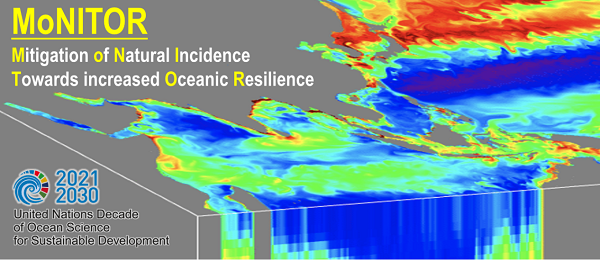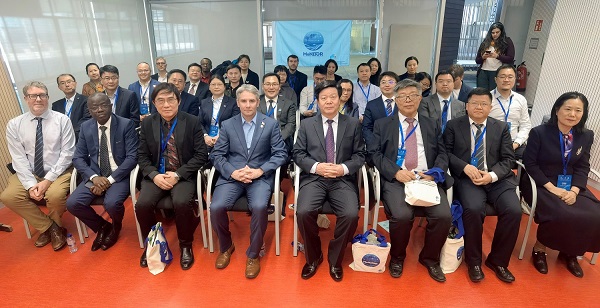

In June, the Intergovernmental Oceanographic Commission of UNESCO (IOC/UNESCO) officially sent a letter congratulating the SIO on the upgrade of the UN “Ocean Decade” project it leads, namely “Mitigation of Natural Incidence Towards an Increased Oceanic Resilience” (MoNITOR), to a major science initiative. This marks the first major science initiative spearheaded by the SIO and further confirms China’s proactive commitment and pivotal position in global marine ecological environment governance and scientific innovation. It also injects new momentum into China’s in-depth participation in the global governance system for sustainable marine development.
Since being approved as an “Ocean Decade” project in June 2023, an internationally replicable marine ecological environment forecasting system has been initially constructed by the MoNITOR initiative, centering on multi-source data observation, model-coupled prediction, and ecological early warning services. Continuous advancements have been made in the research of digital twin technology for marine ecological environment systems. Advanced methods, including remote sensing observation, Argo floats, artificial intelligence analysis and high-resolution models, have been integrated to construct a “virtual twin ocean” system. This system enables refined simulation of ecological environment and future scenario prediction, and supports scientific decision-making and risk early warnings, thereby forging a core technological support platform geared towards a “blue future”.
Currently, cooperative relationships concerning MoNITOR have been established with over 70 institutions and international organizations, including the African Sub-Commission of the Intergovernmental Oceanographic Commission of UNESCO and the National Institute of Oceanography and Fisheries of Egypt. These collaborations span more than 30 countries and regions across five continents, with a particular focus on Africa, countries around the Indian Ocean, and island developing countries. Through these partnerships, ecological monitoring, technical training and joint model development will be carried out, aiming to build a cross-regional cooperation mechanism for marine disaster prevention and mitigation.=

